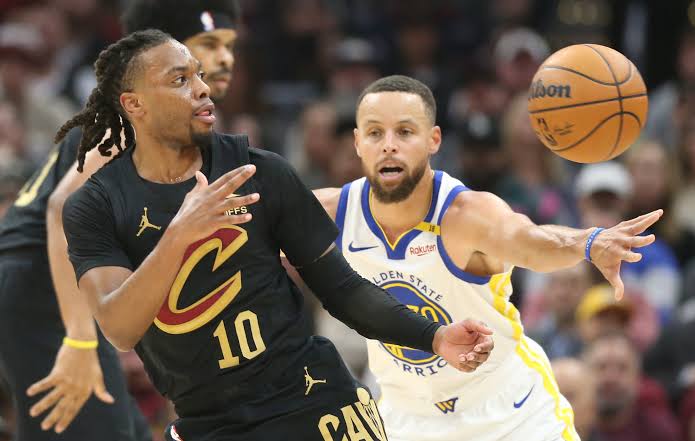The ongoing speculation regarding a potential trade sending LeBron James to Golden State has ignited yet another frenzy of opinions in the sports media world, with Stephen A. Smith stepping up with perhaps the most biting critique to date.
The image of LeBron and Steph Curry joining forces on the hardwood may captivate basketball enthusiasts, but Smith’s comments bring to light some uncomfortable yet valid perspectives on LeBron’s influence over the current struggles facing the Lakers.
On ESPN’s First Take, Smith was unequivocal:
“As a fan, it would be visually spectacular to see LeBron play alongside Steph Curry. I have no doubt about that… However, I find myself against it, because LeBron James does not deserve that privilege. He does not deserve to be playing with Steph Curry.”
What makes Smith’s critique particularly striking is its focus not only on the performance of LeBron on the court but also on his substantial sway in the Lakers’ front office decisions. He specifically called into question James’ role in the tumultuous saga surrounding Russell Westbrook:
“Stay your a right there in LA. You won a championship during the bubble season. Following that, I understand you lost in the first round – yes, you had players like Kentavious Caldwell-Pope and Kyle Kuzma… So what was your move? You let those guys go because you wanted to bring in your buddy, Russell Westbrook.”
It’s worth acknowledging that Smith’s criticism has merit. The Lakers’ flexibility in roster management has indeed been significantly limited following the acquisition of Westbrook, a deal largely attributed to LeBron’s influence. Although Westbrook has resurrected his career with other teams (he has notably excelled in Clippers and Nuggets jerseys), his stint with the Lakers can only be described as tumultuous.
Smith’s most persuasive argument surfaced as he examined the overarching narrative surrounding LeBron’s media portrayal:
“We become so enamored with his greatness on the court that we overlook the depth of his influence and the implications of the decisions he champions, which can ultimately undermine a franchise’s stability as witnessed with the Lakers.”
This discourse taps into a broader conversation within the regarding the delicate balance between player empowerment and a franchise’s long-term viability. Although LeBron’s exceptional skills are beyond question, his impact on team composition has delivered mixed outcomes at best.
Smith’s concluding remarks – “Stay your a right there in Southern California with Anthony Davis and figure it out!” – may come off as severe, yet they encapsulate an increasing sentiment that LeBron ought to channel his efforts into making the most of his current situation rather than orchestrating yet another superteam debacle.



